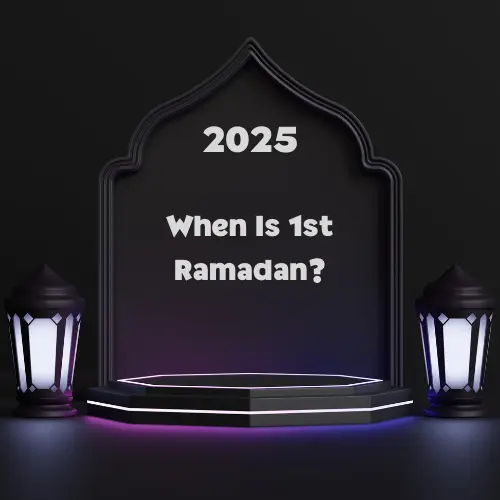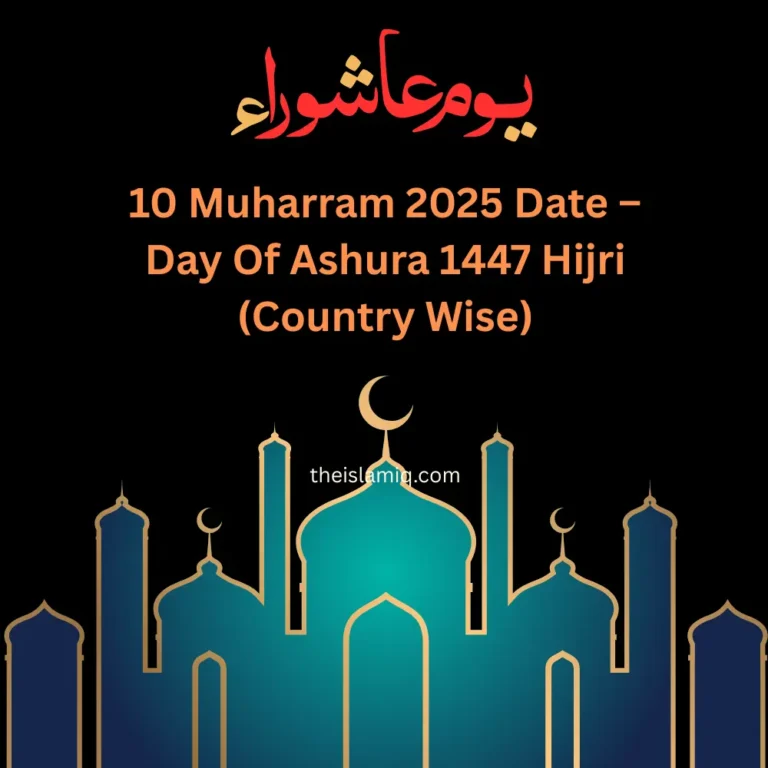Jazakallah Khair Meaning, Usage, and Replies Explained
Have you ever heard someone say “Jazakallah khair” and wondered what it means? Muslims commonly use this Arabic phrase to express gratitude and appreciation. Understanding its meaning, usage, and appropriate responses can help you effectively navigate social interactions with Muslim friends, colleagues, or acquaintances.
In this article, you’ll learn about the significance of “Jazakallah khair” and its variations like “Jazakallah khairan” and “Jazak Allahu Khairan.” We’ll explore the proper context for using this phrase, discuss suitable replies such as “wa iyyakum,” and explain how to respond when someone says “Jazakallah khair” to you. You’ll better grasp this important expression in Islamic culture by the end.
Table of Contents
Jazakallah khair in Arabic
Jazakallah in Arabic:
جزاك اللهُ
Jazakallahu Khairan in Arabic:
جزاك اللهُ خيراً
Jazakallah for male and female
There is a slight difference in wishing well to males versus females.
JazakAllah is used for male
Jazakillah is used for female
The Meaning of Jazakallah Khair
Arabic translation
Jazakallah Khair is an Arabic phrase that is deeply significant in Islamic culture. In Arabic, it is written as جزاك اللهُ خيراً (jazāka -llāhu khayran). This expression combines two important elements: “jazakallah,” which means “may Allah reward you,” and “Khair,” which translates to “goodness” or “blessings.”
Literal interpretation
The literal interpretation of jazakallah khair is “May Allah reward you with goodness.” This phrase goes beyond a simple “thank you” and conveys a heartfelt wish for the person being thanked. It acknowledges that the kindness or favor received cannot be fully repaid by human means alone.
Spiritual Significance
In Islamic tradition, jazakallah khair has a profound spiritual significance. Muslims often use this expression instead of the common Arabic word for thanks, “shukran” (شكراً). This choice reflects the belief that Allah can best reward a person for good deeds [1]. By saying jazakallah khair, you’re expressing gratitude and invoking Allah’s blessings upon the person who has done you a favor.
The spiritual importance of this phrase is rooted in Islamic teachings. A hadith (saying) of Prophet Muhammad emphasizes the value of expressing gratitude in this way: “Whoever some good was done to him, and he says: ‘May Allah reward you in goodness,’ then he has done the most that he can of praise.”
Using jazakallah khair is also a way to recognize that all good deeds ultimately come from Allah. It reminds us of the Islamic principle that Allah is the source of all blessings and rewards. This expression encourages the giver and the receiver to maintain a sense of humility and gratitude toward Allah.
Proper Usage and Context
Understanding the proper usage and context of jazakallah khair is essential to use this expression appropriately. This phrase is versatile and can express gratitude in various situations.
Formal vs informal settings
Jazakallah Khair is suitable for both formal and informal settings. In formal situations, such as business meetings or academic environments, it’s best to use the complete phrase “jazakallahu khairan” to show respect and maintain a professional tone. In more casual settings among friends or family, you can use the shortened version of “jazakallah khair” without losing its meaning or impact.
Gender-specific variations
Arabic grammar rules require slight modifications when expressing gratitude to different genders. When thanking a male, use “jazakallahu khairan” (جزاك اللهُ خيرً). For a female, the correct form is “jazakillahu khairan” (جزاكِ اللهُ خيرً) [2]. When addressing a group, use “jazakumullahu khairan” (جزاكم اللهُ خيرً) for a mixed or all-male group, and “jazakukunnallahu khairan” (جزاكنّ اللهُ خيرً) for an all-female group.
Common misspellings and pronunciations
Non-Arabic speakers often need to correct when using this phrase. Some common errors include saying only “jazak” or “jazak Allah” [3]. Remembering that the complete phrase is “jazakallahu khairan” or “jazakallah khair.” There are several accepted spellings in English, including “jazakallah khair,” “jazak allahu khayran,” and “jazakumullahu khairan” [2]. The correct pronunciation is “ja-ZAA-ka-llah-hu KHAY-ran,” emphasizing capitalized syllables.
Remember the context and person you’re addressing to use jazakallah khair effectively. This expression goes beyond a simple “thank you” and conveys a deeper appreciation rooted in Islamic teachings. Using it correctly shows respect for the culture and language while expressing sincere gratitude.
Appropriate Replies to Jazakallah Khair
When someone expresses gratitude by saying “jazakallah khair,” it’s important to know how to respond appropriately. There are several ways to acknowledge this expression of thanks, ranging from traditional responses to modern adaptations.
Traditional responses
The most common and traditional reply to “jazakallah khair” is “wa iyyakum” (وَإِيَّاكُمْ), which means “and to you” [2]. This simple response reciprocates the sentiment and is suitable for formal and informal situations. For a more elaborate reply, you can say, “wa antum fa jazakumullahu khairan” (وَأَنْتُمْ فَجَزَاكُمُ اللَّهُ خَيْرًا), which translates to “And you too, may Allah reward you with goodness” [2].
It’s worth noting that there are gender-specific variations for these responses. When replying to a male, you would say “wa iyyak” (وَإِيَّاكَ), and for a female, “wa iyyaki” (وَإِيَّاكِ) [2]. These subtle differences show respect for the Arabic language’s grammatical rules.
Modern adaptations
In contemporary settings, some Muslims have adopted more casual responses while maintaining the essence of the traditional replies. For instance, you might hear people saying “you’re welcome” or “my pleasure” in English, especially in multicultural environments.
Another modern approach is using Arabic and English, such as saying, “Wa iyyakum, you’re welcome.” This blended response acknowledges the Islamic greeting while making it accessible to non-Arabic speakers.
Non-verbal acknowledgments
In some situations, non-verbal acknowledgments can be appropriate responses to “jazakallah khair.” A warm smile, a nod, or a gentle hand gesture can convey appreciation and reciprocation of the sentiment, especially when verbal communication is difficult or in brief encounters.
It’s important to remember that the spirit of the response matters more than the exact words used. The goal is to acknowledge the gratitude expressed and to maintain the positive interaction. Whether you choose a traditional Arabic response, a modern adaptation, or a non-verbal acknowledgment, the key is to respond with sincerity and kindness.
By understanding these various ways to reply to “jazakallah khair,” you’ll be better equipped to navigate social interactions within Muslim communities and show respect for Islamic cultural practices.
Conclusion
The phrase “jazakallah khair” significantly influences Islamic culture, going beyond a simple expression of gratitude. Its usage reflects deep-rooted beliefs about divine rewards and acknowledging blessings. Understanding this phrase and its appropriate responses can help foster better communication and respect in diverse settings. This knowledge is crucial for building stronger connections with Muslim friends, colleagues, and acquaintances.
To wrap up, properly using “jazakallah khair” and its variations shows cultural awareness and sensitivity. Knowing how to use and respond to this expression can make interactions more meaningful in formal or casual situations. By grasping the nuances of this phrase, non-Muslims can show respect for Islamic traditions, while Muslims can deepen their appreciation for their cultural heritage. This understanding paves the way for more inclusive and respectful communication across different cultural backgrounds.
Allahumma Barik, Allahumma Barik Laha & Lahu Meaning
FAQs
What is the appropriate response when someone says Jazakallah Khair?
When someone says “Jazakallah Khair,” you can reply with “wa iyyaka” if addressing a male and “wa iyyaki” for a female. For a group, you can use “wa iyyakum.” These phrases mean “and to you too.” A more formal response is “Wa Antum fa Jazakumullahu khayran,” which translates to “And you too, may Allah reward you with goodness.”
When is it suitable to use the phrase Jazakallah khair?
“Jazakallah khair” is a word used by Muslims to express gratitude or thanks, similar to the word “Shukran,” which also means thanks. However, “Jazak Allahu Khayran” is preferred as it specifically asks Allah to bestow blessings or good upon the person rather than merely expressing thanks.
Is it appropriate to say Jazakallah to women?
Yes, you can say “Jazakallah” to women. The correct forms are “Jazaki Allahu Khair” for a single female and “Jazakum Allahu Khair” for a group. For added emphasis, you can say “JazakAllahu khairan katheeran,” which means “May Allah reward you with good in abundance,” with “katheeran” implying “abundance.”
Can one simply say Jazakallah instead of Jazakallah Khair?
It is more appropriate to say “Jazakallah khair” rather than just “Jazakallah.” The term “Jazakallah” alone could mean either “may Allah reward you” or “may Allah punish you.” The addition of “Khair,” meaning “good” or “the best,” specifies the positive nature of the wish, making “Jazakallah khair” the preferred expression.






